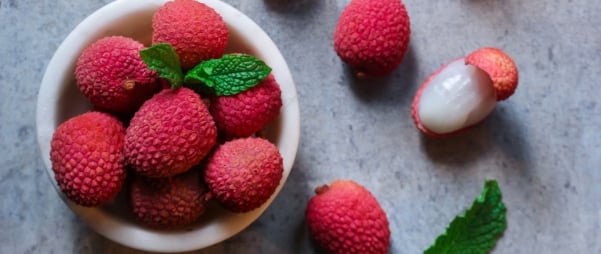Litchis or Lychees are a much loved fruit, known for their soft fleshy texture and juicy flavour. Native to Southeast Asia and a rich source of antioxidants and minerals including vitamin B and C, the fruit is enjoyed by people, young and old alike.
Their inclusion in pregnancy diets, despite their nutritional value, however, seems debatable.
Is it safe to eat litchi during pregnancy?
Litchis are composed primarily of water and sugar, and it is for this reason that some pregnant women, especially those with gestational diabetes (GDM) may be asked to restrict the consumption of these fruits.
“We dislike imposing restrictions on pregnant women because we want them to enjoy this phase of life. That said, we are mindful of the calories that pregnant women need, and guide them on which foods and fruits to eat and what would not be appropriate to eat during pregnancy,” says Dr. Anita Sabherwal Anand, Consultant Obstetrician-Gynecologist at Sitaram Bhartia Hospital in South Delhi.
What are the fruits to avoid during pregnancy?
Typically women with GDM may not be allowed to eat fruits like mango, sapota (chikoo), banana and litchi during pregnancy because of their high glycemic index or high calories.
Glycemic Index (GI) is a measure on a scale of 0-100 that ranks how much and how quickly a food item is likely to increase your blood sugar levels within two hours of consumption. Foods with a medium to high GI should generally be avoided.
Though litchis are high in calories, they are also rich in fiber that decreases their overall glycemic index.
Women who do not have diabetes during pregnancy can consume litchis, though in a limited way.
Read: A Mom-to-be’s Guide to Fruits to Avoid During Pregnancy
Is it safe to drink litchi juice during pregnancy?
If you must drink litchi juice, make sure the juice is freshly squeezed because canned juices are likely to have preservatives and a higher quantity of sugar.
“Women who are pregnant with twins or those who are overweight or have diabetes must exercise caution by keeping track of their daily sugar intake and checking their blood sugar readings on a regular basis. “
What happens if you eat too much lychee?
You may gain weight rapidly because litchis/lychees are high in calories. It is best eaten in moderation to gain maximum benefit from the fruit.
If you are located in Delhi and are looking for an experienced team of gynecologists, dietician and antenatal educators to guide you through your pregnancy, book an appointment with us. At Sitaram Bhartia, we believe that proper antenatal education and right medical guidance can help women feel more prepared for labour and delivery.
Call/WhatsApp us at 9871001458 to book a paid consultation at our hospital located in South Delhi.
What do you need to know about consuming litchi during pregnancy?
It is considered a ‘hot’ fruit
“Our mothers and grandmothers believe that litchis produce heat in the body which may harm you and your baby and so they are best avoided, “ says Dr. Anita.
“The belief has its roots in Ayurveda, which classifies foods as ‘hot’ or ‘cold’ depending on how they affect the metabolism and digestion. Ayurveda is a completely different system of medicine and as allopathic doctors, we refrain from commenting on their practices.”
So should you avoid litchi during pregnancy?
“If you have faith in Ayurveda and live by it, then you could follow their recommended fruits and foods for your body type.”
However, you can consume ripe litchis in moderation during the season as they are a good source of vitamins, minerals like potassium and magnesium and fibre.
It can spike blood sugar levels
Litchis may not be recommended for women with gestational diabetes because it can raise glucose levels.
“If eaten, you may have to modify your diet to accommodate for the rise in blood sugar levels due to the fruit. Keep a check on your blood sugar levels as advised by the diabetologist and stay in touch with your dietician,” recommends Dr. Anita.
It should be eaten in moderation
You could eat about 8 litchis a day, though this figure should be modified based on your total calorie requirement per trimester.
“You could also avoid eating fruits after your meals as the increase in carbohydrates may in turn increase glucose levels.”
Controversy around Litchis
An outbreak in Muzaffarpur, Bihar in 2014 that took the lives of 50 children was linked to toxins present in litchi, and caused much fear around its consumption.
A study published in The Lancet stated, “Although an association with MCPG (methylenecyclopropylglycine) has been previously proposed,2, 3, 34 and MCPG has been detected in the seed and aril of the litchi,6, 35 this is the first confirmation that this recurring outbreak in Muzaffarpur is associated with litchi consumption and both hypoglycin A and MCPG toxicity.”
The study recommended that litchis shouldn’t be consumed on an empty stomach as it could lead to hypoglycemic encephalopathy which could turn fatal.
“More research, however, is needed to prove the causative link between litchi and the recurring outbreaks. “
Conclusion
In general, you may eat litchi during pregnancy provided you don’t go overboard and keep your blood sugar levels in check, especially for women who have been diagnosed with gestational diabetes.
 Medically Reviewed by Dr. Anita Sabherwal Anand
Medically Reviewed by Dr. Anita Sabherwal Anand

